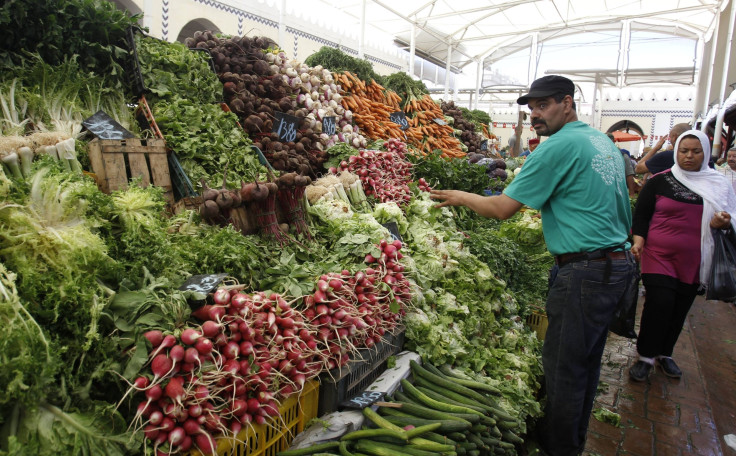Egypt's Chaos Need Not Derail The Arab Spring
Opinion

Continuing violence and unrest in Egypt is provoking widespread concerns that the most populous Arab nation may descend into civil war or a new dictatorship, extinguishing the hopes of the Arab Spring. But while Egyptians have been staging mass protests, a more encouraging story has been playing out in Tunisia – home to the first Arab revolution. Tunisia's peaceful accommodation may not make headlines like the bloody street protests across Egypt, but in the end could have greater significance.
Perhaps no less passionately than Egyptians, Tunisians are debating the draft of a new constitution 18 months in the making through an elected constitutional assembly. By translating revolutionary aspirations into transitional government structures and seeking to forge a popular consensus, Tunisian leaders have managed to avoid the most destabilizing aspects that have imperiled Egypt’s transition.
Like Egypt, Tunisia must contend with the vast ideological divide between Islamists and secularists, which present a clear challenge to governance and are far from resolution. But Tunisia’s more deliberate and consensus-based approach could well produce a better and more durable outcome for other Arab nations to emulate.
Unlike Egypt, Tunisia opted to address core issues relating to a new constitution, its form of government and the role of Islam in public life before moving to formal elections. As in Egypt, Tunisian leaders have grappled with the suspicions between Islamists and secularists and between moderate Islamists in government and more radical Salafis. But Tunisians have managed to engage in dialogue and make gradual progress in forging national consensus on these key identity issues – something Egyptians have been unable to do.
The Tunisian National Constituent Assembly is now in the final debate on the draft, which should be presented for an Assembly vote in the next few months. If it passes the constitution by a two-thirds vote, the broadly representative Assembly will eliminate the need for a popular referendum.
As in Egypt, Tunisia’s Islamists fared well in transitional elections. The once-banned An-Nahda party holds key leadership positions. But unlike their Egyptian counterparts, an-Nahda wisely opted to govern in coalition with non-Islamist parties. This decision effectively broadened Tunisia’s governing structures, creating space for both Islamist and secularist moderates to share power.
Equally important, political differences can play out without resorting to protests or violence. Former Prime Minister Hamadi Jebali resigned of his own accord in February when he failed to persuade An-Nahda that a technocratic cabinet would better serve the country. He is now touted as a potential leading candidate in Tunisia’s forthcoming presidential elections.
Most importantly, in the drafting of the constitution Tunisian Islamists agreed to remove reference to Shari’a law. This critical compromise has helped ease some (but certainly not all) of the worries of secular Tunisians. The draft constitution also reportedly contains measures for insuring checks and balances on power.
The Nahda-led government also moved earlier this year to crack down on Salafist Islamic extremists who have continued to push their fundamentalist agenda. Many Tunisians heralded the government’s decision to take on the Salafists in May as an important turning point, which won support from many skeptics who now see that an Islamist-led coalition can put the national interest ahead of religious solidarity.
Tunisian civilian authorities take more responsibility for their country’s path in part because they do not have a tradition of military rule. Tunisia’s security forces would not have the power or capacity to intervene in government as did Egypt’s military, and have played a professional and discreet role in Tunisia’s transition.
Tunisia’s more inclusive approach to politics may yield important economic benefits as well. The International Monetary Fund approved a nearly $2 billion loan for Tunisia in June. Other international actors – including Japan, Qatar and the Islamic Development Bank – have also stepped in to provide aid to Tunisia. French President Francois Hollande recently visited Tunisia and announced a package of agreements worth 500 million euros.
A conference that the Stimson Center helped organize in early July in Tunis on regional economic integration underscored the game-changing potential of deeper economic cooperation between Tunisia and its neighbors, benefiting the entire region and its people.
Rather than wallowing in the frightening specter of Egypt’s meltdown, Tunisians and their neighbors at the conference were able to focus on both practical and ambitious economic strategies that can create jobs and reinvent regional relations for the long term.
Tunisia is small and of less regional weight than Egypt, but it remains a potentially positive model for Arab transitions to more open and just societies and political systems. If it continues on its current path, Tunisia will provide some modest hope that at least some of the Arab transitions will produce more stable and democratic outcomes.
Ellen Laipson is president and CEO of the Stimson Center and Mona Yacoubian directs the Pathways to Progress project, a collaboration of Stimson and the George C. Marshall Foundation.
© Copyright IBTimes 2024. All rights reserved.





















